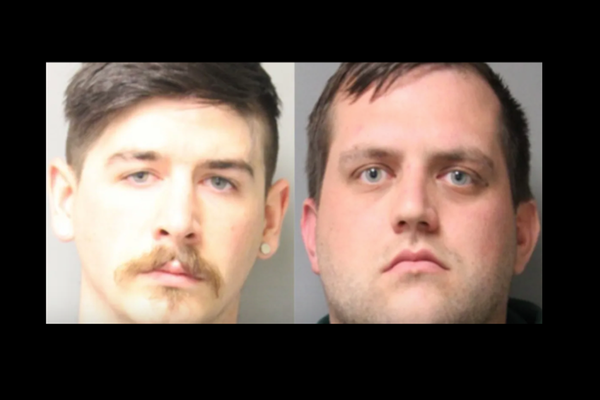
Beijing (AFP) - President Xi Jinping declared Tuesday that "no force" can shake China as he oversaw a huge military parade to celebrate 70 years of Communist rule, while violent clashes erupted in Hong Kong where tens of thousands of pro-democracy protesters took to the streets.
While Xi took salutes from some 15,000 troops in the capital, pro-democracy protesters in Hong Kong threw eggs at his portrait as the semi-autonomous finance hub convulsed with the most sustained and widespread clashes in months.
Running battles raged for hours across multiple locations with police firing tear gas, rubber bullets and water cannon against hardcore protesters throwing rocks and Molotov cocktails.
Many of the fights were especially fierce with police in one district having corrosive liquid thrown at them and officers in another area retreating into a town hall from projectile-throwing crowds.
Thick black smoke filled the air as protesters set fire to barricades.
A police source told AFP officers fired two live warning shots in separate clashes as they battled activists who are pushing for greater democracy and a halt to sliding freedoms under Beijing's rule.
The violence cast a shadow over the lavish parade in Beijing where tanks, new nuclear missiles and a supersonic drone paraded down the Avenue of Eternal Peace as Xi and other Communist Party leaders watched from a rostrum overlooking Beijing's Tiananmen Square.
The event was meant to extol China's journey from a poor nation broken by war to the world's second largest economy, but Xi faces a clutch of challenges from a US trade war to four months of unrest in Hong Kong.
New weapons
Xi, who wore the distinctive "Mao suit", delivered a speech invoking the "Chinese dream" of national rejuvenation -- his grand vision of restoring the country to perceived past glory.
"There is no force that can shake the foundation of this great nation," Xi said from the Tiananmen rostrum where Chairman Mao Zedong proclaimed the People's Republic of China on October 1, 1949.
Helicopters flew in a "70" formation over the city as troops goosestepped across Tiananmen Square in what state media described as the country's biggest ever military parade, featuring 580 pieces of armament and 160 aircraft.
The People's Liberation Army brought out its newest hardware, including the DF-41, a nuclear-capable intercontinental ballistic missile with range enough to reach the entire United States, and the DF-17, a launcher for a hypersonic glider.
Warplanes including the J-20 stealth fighter soared through the smog-choked skies, and state media said a high-altitude, high-speed reconnaissance drone made a public appearance for the first time.
"The party hopes that this occasion will add to its legitimacy and rally support at a time of internal and external challenges," Adam Ni, China researcher at Macquarie University in Sydney, told AFP.
US trade war negotiations have dragged on, and African swine fever has raced through the country's pig supply, sending pork prices soaring.
But a major headache remains Hong Kong.
Despite increasing levels of violence, there is still huge public support for a movement that presents the most serious threat to Beijing's rule since Britain returned it to China in 1997.
Alongside the clashes with largely young, hardcore protests, tens of thousands of peaceful demonstrators defied a police ban on rallies to once again march through the city's commercial district.
In his speech, Xi said China "must adhere" to the one country, two systems policy governing Hong Kong and "maintain the long-term prosperity and stability" of the city.
He also called for the "peaceful development" of relations with self-governed Taiwan but also reiterated his determination to seize the island, by force if necessary.
Mao portrait
The Beijing festivities were held under tight security, with road closures and even a ban on flying kites.
The military show of force was followed by a pageant involving 100,000 civilians and 70 floats depicting China's greatest achievements.
A giant portrait of Mao, followed by those of past leaders and Xi, streamed across the avenue as the president and other officials waved.
Replicas of a space rocket, a homegrown passenger plane and high-speed trains were followed by smiling ethnic minorities -- imagery that glosses over accusations of human rights abuses in the frontier regions of Tibet and Xinjiang.
Party survives
The Communist Party has repeatedly defied the odds to remain in power for seven decades.
Under Mao, tens of millions of people died during the disastrous Great Leap Forward, and the country was plunged into violent chaos during the decade-long Cultural Revolution.
After Mao's death in 1976, the party launched the reform and opening-up policy under paramount leader Deng Xiaoping, starting decades of breakneck growth and development.
But the party retained a stranglehold on power, sending troops to end the biggest challenge to its rule in 1989 when pro-democracy protesters occupied Tiananmen Square.
Xi has made clear that he believes only the Communist Party can make the country realise its dream -- with him at the helm.







